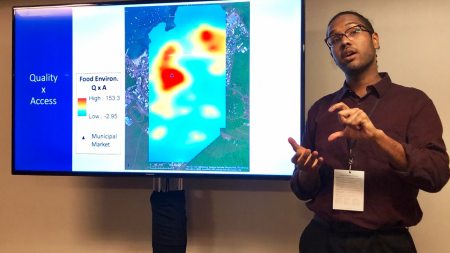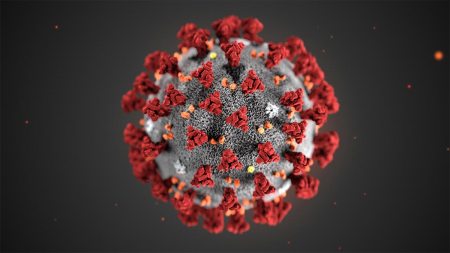Press the play button above
The right food for all
Whether it's finding ways to personalize nutrition and diets or helping shape policies on nutritional food labels, Tar Heels are working to improve and enhance the health of North Carolinians and people around the world through better nutrition.
Researchers, faculty members and students at both the UNC Gillings School of Global Public Health's nutrition department in Chapel Hill and the UNC Nutrition Research Institute in Kannapolis are leading the way toward a healthier tomorrow.
Fostering optimal nutrition
With more than 50 faculty members and researchers, Gillings School’s nutrition department in Chapel Hill is a global leader in research, training and public policy. As the only academic nutrition program in the country located in both a school of public health and a school of medicine, the department is uniquely positioned to engage in inventive approaches to move quickly from discovery to delivery.
The department’s students and faculty research critical public health issues ranging from food insecurity and obesity to cardiovascular disease, diabetes and cancer. Their research projects are carried out throughout North Carolina and the world, including in communities in China, India, Malawi, Spain and the Philippines.
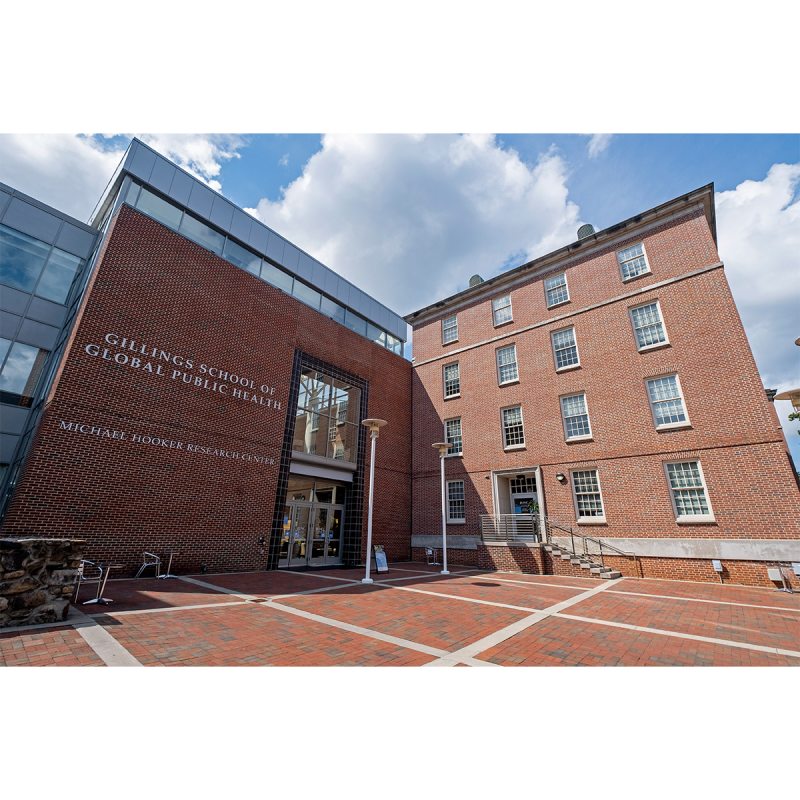
Personalizing health
Carolina’s Nutrition Research Institute is an internationally recognized center that conducts innovative and translational nutrition research that examines how individual differences in requirements and responses to diet affect nutritional needs. NRI houses a variety of research spaces and clinical facilities, including a metabolic research kitchen, a behavioral testing suite and a metabolic chamber.
The institute’s advances are leading to successes in preventing and mitigating the negative effects of chronic diseases and aging, and in improving human development, even prior to conception.
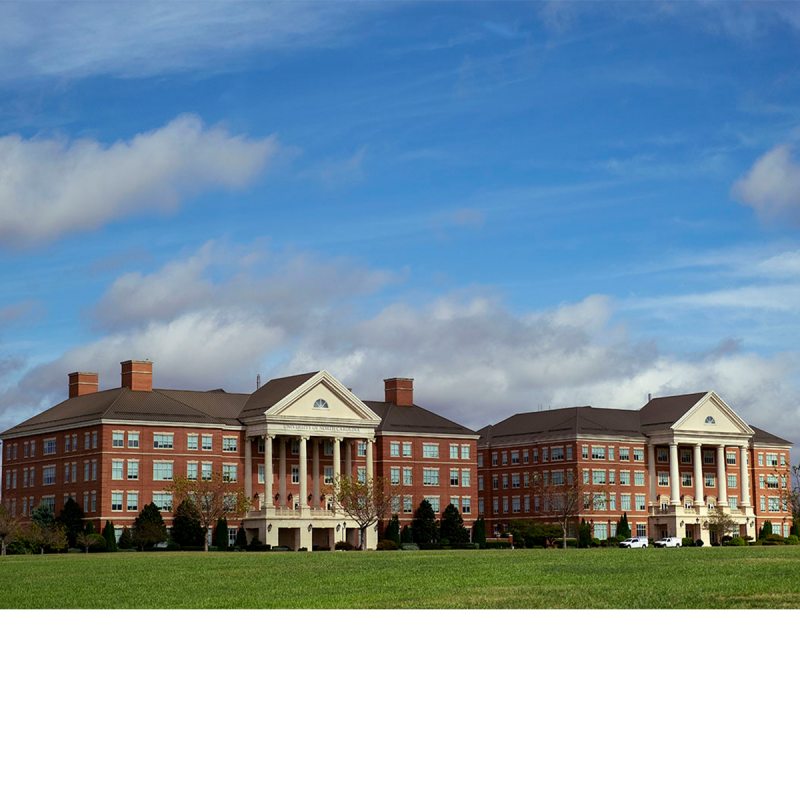
Precision nutrition
Researchers and Gillings School faculty members at the UNC Nutrition Research Institute are translating cutting-edge nutrition research into practical steps toward better health. They are working to enhance the understanding of health and human development by studying how genetic, epigenetic, microbiomic and metabolic mechanisms affect a person’s nutritional health.
Instead of applying a one-size-fits-all approach to nutritional health, the research in precision nutrition will help health care providers improve patients’ health, enhance brain development and more effectively treat diseases like obesity and cancer.
Not only has the institute been improving the lives of North Carolinians through its research, but it has also helped rejuvenate the Kannapolis community. When the city’s Cannon Mill closed in 2003, more than 4,000 workers lost their jobs. Since the North Carolina Research Campus opened in Kannapolis in 2008, it has created nearly 1,000 jobs and played a critical role in the city’s development.
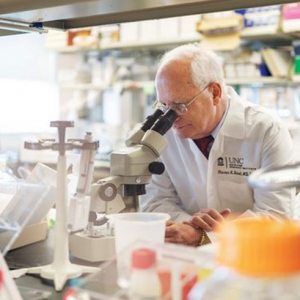
See how Zeisel and NRI researchers are honing precision nutritionThe USDA regularly distributes a nutrition guide that provides the recommended daily intake for different food groups. But that cookie-cutter approach to eating — the idea that every person should consume a similar diet — ignores individual needs. Dr. Steven Zeisel is working to change that.
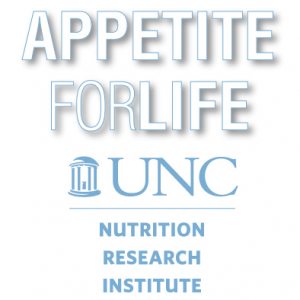
Learn more about Appetite for LifeOutside the lab, the NRI is actively closing the gap between Carolina researchers and the community through its Appetite for Life program, which hosts cooking and science demonstrations, events and interactive lectures that share nutrition research with North Carolinians.
Researchers making impacts
locally and globally
Examining food environments in the Galapagos
Gillings graduate student Khristopher Nichols studies food environments — the physical, cultural, economic and social factors that impact a community’s opportunity to access food — and how they shape people’s diets and health. His work led him to the Galapagos to study one of the most complex food environments in the world.
Transforming a lab into a mini mart
Researchers from the Gillings School of Global Public Health have created the UNC Mini Mart to examine how various obesity-prevention policies work in a realistic setting. Their initial studies are examining the impact sugary drink taxes and health warning labels have on the purchasing habits of Hispanic parents in North Carolina.
Unlocking the Genetics of Eating Disorders
Eating disorders have long been discussed in strictly psychiatric terms, but a study from the UNC Center of Excellence for Eating Disorders is reconceptualizing these illnesses. Through international genetic sampling, Cynthia Bulik, the center’s founding director, aims to puzzle out the biological factors behind eating disorders and improve the success of treatments.
In response to nutrition warning labels, manufacturers reformulate unhealthy foods
Researchers from Carolina and the University of Chile found there were important decreases in the levels of sugar and sodium in packaged foods and beverages within just one year of a 2016 Chilean law requiring front-of-package warning labels on unhealthy foods, showing that these kinds of regulations can lead to concrete nutritional improvements of such popular products.
New Chatham Food Hub connects communities with access to local food during COVID-19 pandemic
The Center for Health Promotion and Disease Prevention and UNC Health worked with Chatham County and N.C. State Extension partners to create a one-stop food hub at Bray Park in Siler City, which includes free meals and non-perishable foods for low-income customers.
Obesity is a major risk factor for COVID-19 complications
A new analysis led by UNC Gillings School of Global Public Health reseachers shows that obesity plays a major role in the severity of consequences experienced by people who become infected with the novel coronavirus.
